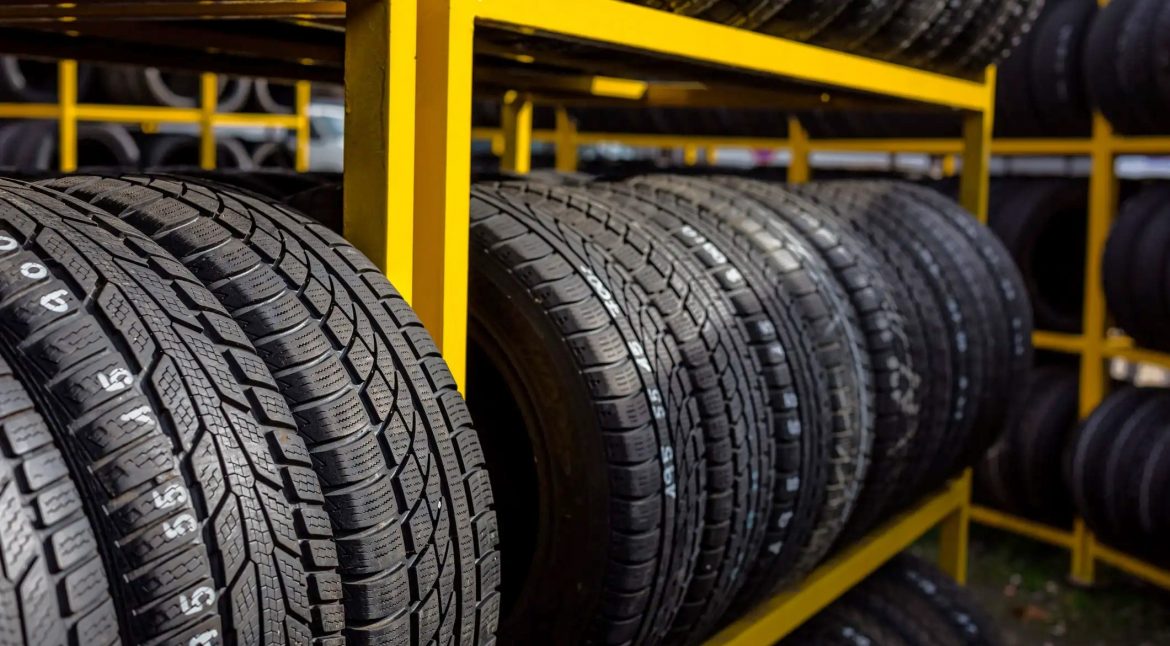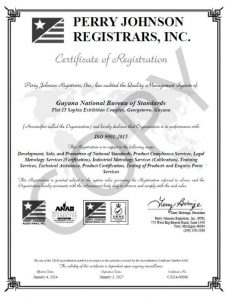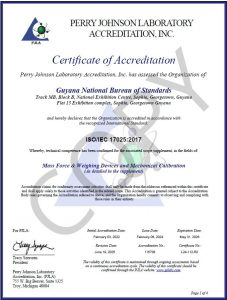Tyres sold to consumers must be able to provide grip for braking and acceleration to maintain steering and directional control, and act as shock absorbers for vibrations from the road. Damaged or defective tyres which cannot provide these benefits compromise the lives of those travelling on the roadways. As such, for over twenty-three (23) years, the Guyana National Bureau of Standards (GNBS) has been monitoring this commodity to ensure that only the best tyres are sold to consumers.
The GNBS is responsible for the monitoring of new and used tyres upon importation and at sale outlets, based on the requirements of two National Standards. These standards are the Guyana Standard Requirements for Pneumatic passenger car tyres, GYS 67:2017, and the Guyana Standard Specification for Pneumatic tyres for highway commercial vehicles, GYS 194:2001.
Importers and dealers of both new and used tyres are required to register with the GNBS annually to import and sell on the local market. To ensure that these businesspersons comply, Inspectors of the GNBS Product Compliance Department inspect the commodity at the ports of entry upon importation, and at warehouses and sale outlets during surveillance visits. From January to May this year, there have been a total of seventy-six (76) inspections of used tyres imported into Guyana and ninety-seven (97) inspections of new tyres.
The new and used tyres are checked for defects including cracks on the sidewall, uneven wear, cracks within thread, damaged bead area and low thread depth. The thread depth of tyres offers visual guidance as to the extent of usage of a tyre. For used tyres, the required thread depth must be at least four millimetres (4 mm) and must not exceed six years from the date of manufacture. Once defects are found, those tyres are destroyed. From inspections, a total of 3002 tyres were destroyed due to various defects between January to May 2023.
Tyres are also inspected for conformance to labelling requirements. They must be properly labelled to include size, brand, the maximum permissible inflation pressure, manufacture date and other information. The GYS 67:2017 states that new tyres should not be more than two years old from the date of manufacture at the time of importation into Guyana, while tyres six years or older should not be offered for sale. It must be noted that snow tyres are not allowed to be imported and sold in Guyana.
Meanwhile, at the sale outlets, checks are also made to ensure that the tyres are stored in accordance with the requirements of the standard. The standard specifies that tyres must be stored vertically, horizontally or plaited to avoid deformation. During inspections, dealers are educated on the requirements for passenger tyres to be stored in rows of ten if packed horizontally while commercial tyres can be stored in rows of eight. In addition, they must be kept in a building to protect them from humidity, direct sunlight, or extreme temperatures. Tyres must also be stored away from oils and other chemicals, which can speed up deterioration.
The GNBS is encouraging tyre dealers and importers to ensure that the commodity complies with the requirements of the Standards to minimise the rejection of new and used tyres imported into Guyana for resale. Stakeholders can acquire a copy of the documents from the GNBS which can be used to appropriately advise their suppliers.
Consumers are also advised to look for the GNBS permits issued to tyre dealers at their sale outlets. The permit to sell indicates that the retailer is not only registered to sell the commodity, but the tyres are also monitored by the GNBS.
For further information, kindly contact the GNBS on telephone numbers: 219-0064/65/66 or 219-0069 or send us a message on Whatsapp 692-4627 (GNBS).






